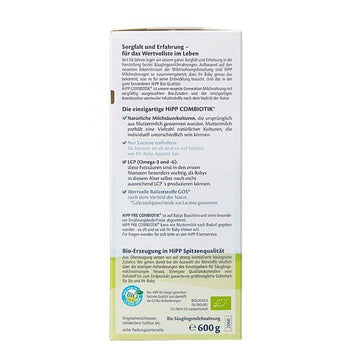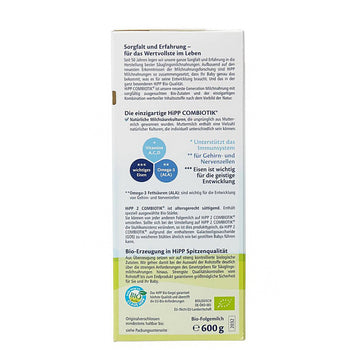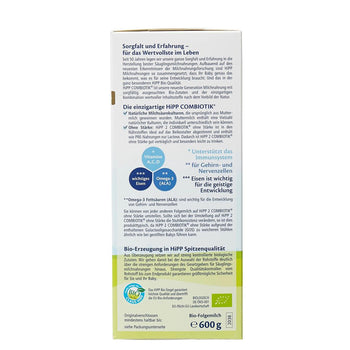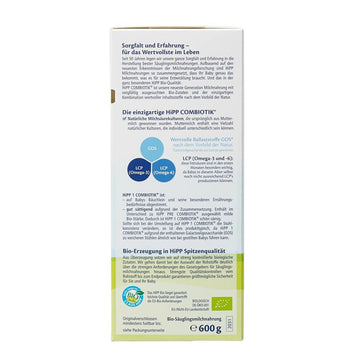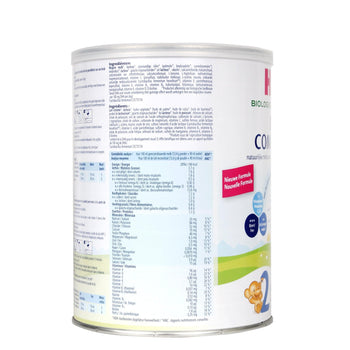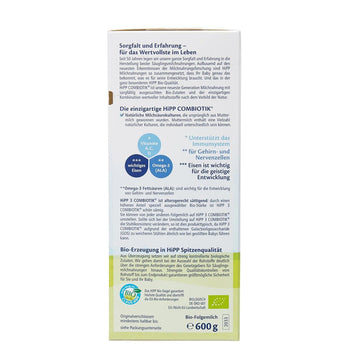When it comes to choosing the right infant formula for your little one, parents are often faced with a plethora of options. Two popular brands that frequently come up in discussions are Kendamil and Similac. Both have their unique selling points, but which one is better? In this blog post, we will dive deep into the features, benefits, and potential drawbacks of both Kendamil and Similac to help you make an informed decision.
Understanding Kendamil
Kendamil is a British brand known for its commitment to natural ingredients and high-quality formulations. The company prides itself on using whole milk from grass-fed cows, which is rich in nutrients and provides essential fatty acids crucial for a baby's development. Kendamil formulas are free from palm oil, fish oil, and artificial additives, making them an appealing choice for parents who prioritize organic and wholesome nutrition.
Key Features of Kendamil
-
Natural Ingredients: Kendamil uses whole milk as its primary ingredient, which is packed with vitamins and minerals essential for growth. The absence of palm oil is another significant advantage since palm oil has been linked to digestive issues in some infants.
-
Nutritional Profile: The formula includes prebiotics (GOS) that support gut health and aid digestion. It also contains DHA (docosahexaenoic acid) derived from algae, promoting brain development without relying on fish oils.
-
No Artificial Additives: Parents can feel good knowing that Kendamil does not include artificial colors or preservatives in its formulas.
-
Ethical Sourcing: The brand emphasizes sustainability by sourcing its ingredients responsibly and ensuring ethical farming practices.
Exploring Similac
Similac is one of the most recognized names in the infant formula market globally. Manufactured by Abbott Laboratories, it offers a wide range of products tailored to meet various nutritional needs. Similac formulas are designed with advanced nutrition science in mind but may include synthetic ingredients that some parents prefer to avoid.
Key Features of Similac
-
Variety of Formulas: Similac offers numerous options tailored for different stages of infancy as well as specific dietary needs (e.g., sensitive stomachs or lactose intolerance). This variety allows parents to choose a formula that best suits their child's requirements.
-
Fortified Nutrients: Many Similac products are fortified with iron and other essential vitamins like A, C, D, E, K, B6, B12, riboflavin (B2), niacin (B3), folic acid (B9), calcium, phosphorus, magnesium, zinc—ensuring comprehensive nutritional support for growing infants.
-
Probiotics: Some formulations contain probiotics that promote gut health and immune function—an important consideration for many parents concerned about their baby's digestive system.
-
Widely Available: One significant advantage of Similac is its availability; it can be found in most supermarkets and online retailers across various regions.
Comparing Nutritional Profiles
When comparing the nutritional profiles of Kendamil versus Similac:
-
Fat Sources: While Kendamil uses whole milk fat as its primary source of fat—a more natural option—Similac often includes vegetable oils like soy or palm oil.
-
DHA Sources: Both brands provide DHA; however, while Kendamil sources it from algae (a plant-based source), some Similac formulations use fish oil.
-
Prebiotics vs Probiotics: Kendamil focuses on prebiotic fibers like GOS to support gut health while some variants of Similac contain probiotics aimed at enhancing digestive health.
Potential Drawbacks
While both formulas have their strengths:
-
Kendamil's Availability: As a relatively newer brand outside the UK market compared to Similac's global presence; finding Kendamil may be more challenging depending on your location.
-
Price Point: Generally speaking, premium brands like Kendamil can be more expensive than mainstream options such as Similac due to their focus on high-quality ingredients.
-
Similac's Synthetic Ingredients: Some parents may prefer avoiding synthetic additives found in certain formulations by Similac—this could be a deciding factor if you lean towards organic choices like those offered by Kendamil.
Conclusion
Choosing between Kendamil and Similac ultimately depends on your priorities as a parent—whether you value organic ingredients over variety or price over nutritional content. If you're looking for a formula made with whole milk fat without artificial additives or palm oil—and you're willing to pay a bit more—Kendamil might be the better choice for you.
On the other hand, if you need something readily available with various options tailored specifically for different dietary needs at potentially lower prices—Similac could serve your family well.
In either case, it's always best practice to consult your pediatrician before making any changes to your baby's diet or introducing new formulas into their routine!















